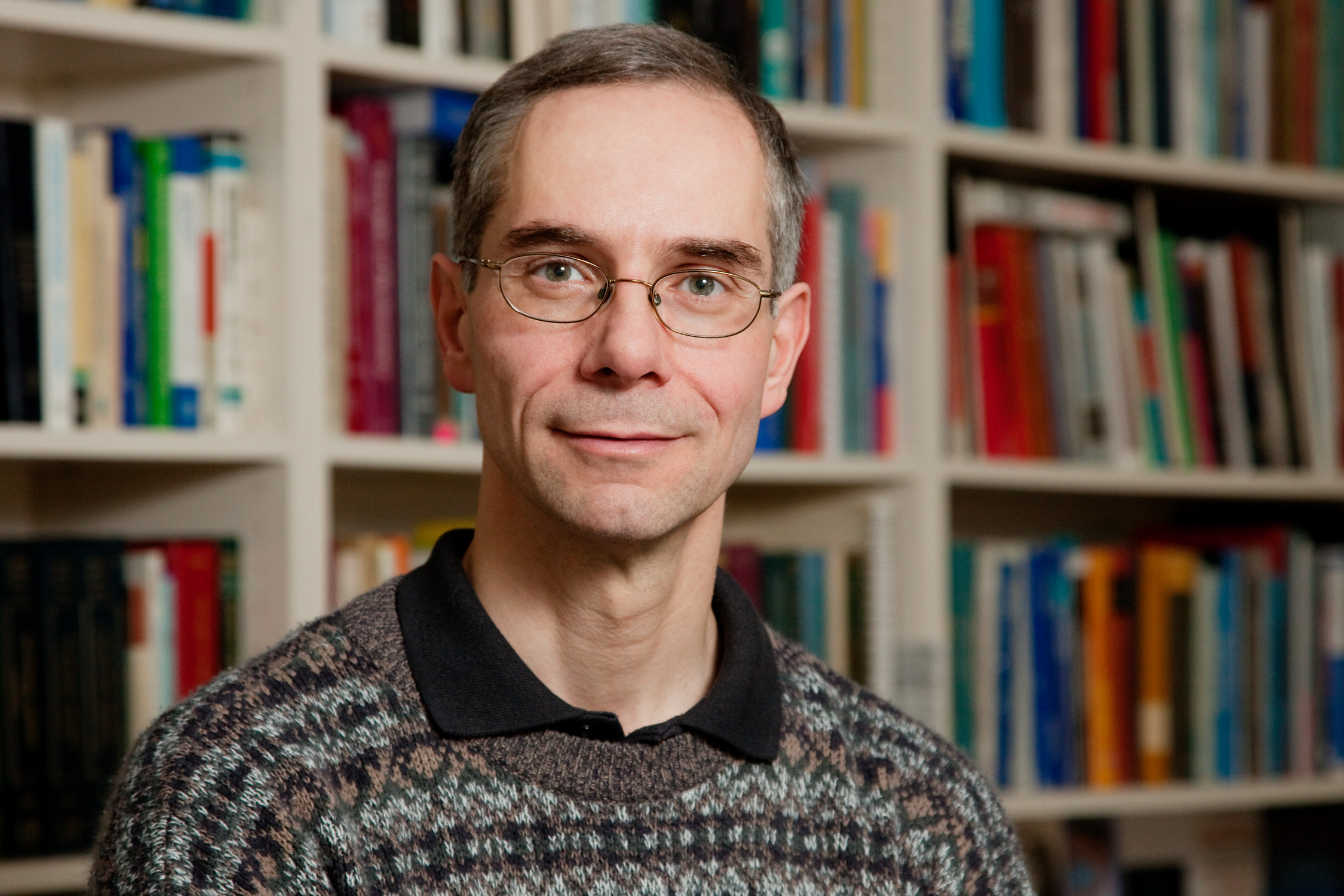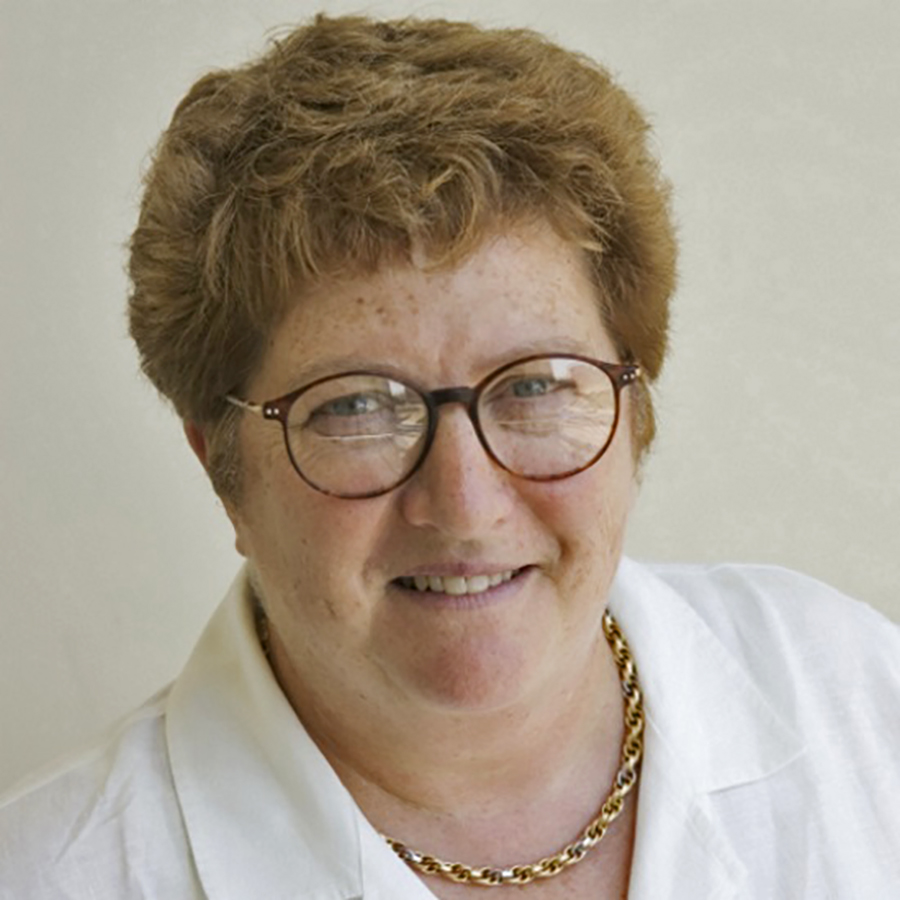Article
Martin Gruebele and Zaida (Zan) Luthey-Schulten will present "4D simulations of cell states: Bringing cells to life on a computer and in Minecraft through the integration of experiments and theory" at the Beckman Institute Director's Seminar at noon on Thursday, Feb. 1 in 1005 Beckman.
Registration is required to attend. Lunch will be provided.
"4D simulations of cell states: Bringing cells to life on a computer and in Minecraft through the integration of experiments and theory"
To construct 4D whole cell models that reflect cell states of real living cells requires information about many cellular processes: from metabolism to genetic information processes, growth and cell division. This grand challenge to build functioning cell models that provide quantitative descriptions of the physical and chemical properties defining the cell state as a function of time is beyond any individual and requires a Center-level perspective. Our Science and Technology Center for Quantitative Cell Biology has experts from the areas of bio computation and machine learning to super-resolution and label free IR imaging, tomography, organelle and cell biology, molecular biophysics, synthetic and microbiology, and science education. Their work is complemented by unique tools available from the shared laboratory facilities at the Beckman Institute, the Carl Woese Institute of Genomic Biology, and the computational facilities at National Center for Supercomputer Applications here at Illinois, collaborations with colleagues at the EMBL, the University of Groningen, and the University of Stockholm as well by industrial partners Abberior Instruments, NVIDIA, and J. Craig Venter Institute. We will give a brief overview of the Center’s computational, experimental, and educational goals and progress since its funding in fall of 2023.
 Martin GruebeleMartin Gruebele was born in Stuttgart, Germany in 1964. He obtained his B.S. in 1984 and his Ph.D. in 1988 at the University of California, Berkeley with Richard Saykally, completed a postdoc with Ahmed Zewail at Caltech, and then joined the faculty at the University of Illinois in 1992. At UIUC, he is currently the James R. Eiszner Chair in Chemistry, a professor of physics, and a professor of biophysics and quantitative biology. He is also affiliated with the Center for Advanced Studies and the Carle-Illinois College of Medicine.
Martin GruebeleMartin Gruebele was born in Stuttgart, Germany in 1964. He obtained his B.S. in 1984 and his Ph.D. in 1988 at the University of California, Berkeley with Richard Saykally, completed a postdoc with Ahmed Zewail at Caltech, and then joined the faculty at the University of Illinois in 1992. At UIUC, he is currently the James R. Eiszner Chair in Chemistry, a professor of physics, and a professor of biophysics and quantitative biology. He is also affiliated with the Center for Advanced Studies and the Carle-Illinois College of Medicine.
Gruebele's research interests include protein and RNA dynamics; biomolecule dynamics in live cells; vibrational energy flow in molecules; quantum computing, measurement, and control; nanoscale imaging of excited states; glassy dynamics; and locomotion behavior. He is a Fellow of the American Physical, Chemical and Biophysical Societies, the American Academy of Arts and Sciences, as well as a member of the National Academy of Sciences and the German National Academy of Sciences. He has edited for the Journal of Physical Chemistry, the Journal of the American Chemical Society, and the Proceedings of the National Academy of Sciences. His group’s work is published in over 300 papers and reviews. Gruebele is married to Nancy Makri, with two children: Alexander and Valerie. In his free time, he swims, bikes, runs, plays pipe organ, and builds miniatures.
 Zan Luthey-SchultenZaida (Zan) Luthey-Schulten has the Murchison-Mallory Endowed Chair in chemistry and is director of the NSF Science and Technology Center for Quantitative Cell Biology at the University of Illinois Urbana-Champaign which includes faculty from 8 disciplines as well as industry partners and European collaborators from Germany, the Netherlands, and Sweden. She is an affiliate professor in the department of physics, the Beckman Institute, and the Carl Woese Institute of Genomic Biology and Fellow of the Biophysical and Physics Societies. She received her PhD from Harvard University and came to UIUC from the Technical University of Munich. Her research group is well-known for their 4D (x,y,z,t) simulations of a minimal bacterial cell over its cell cycle using their GPU-based software Lattice Microbes. This pioneering work is made possible by the integration of experimental data with hybrid stochastic-deterministic computational methods on state-of-the-art graphical processor units (GPU). Fundamental behaviors emerge from these 4D simulations of a living minimal cell that reveal how the cell balances the demands of its metabolism,genetic information processes, and growth offering insight into the principles of life. Zan closely collaborates with many theoretical and experimental groups in the center, as well as outside groups, to integrate -omics, microscopy and many other types of data into 4DWCMs of bacterial, yeast and human cells.
Zan Luthey-SchultenZaida (Zan) Luthey-Schulten has the Murchison-Mallory Endowed Chair in chemistry and is director of the NSF Science and Technology Center for Quantitative Cell Biology at the University of Illinois Urbana-Champaign which includes faculty from 8 disciplines as well as industry partners and European collaborators from Germany, the Netherlands, and Sweden. She is an affiliate professor in the department of physics, the Beckman Institute, and the Carl Woese Institute of Genomic Biology and Fellow of the Biophysical and Physics Societies. She received her PhD from Harvard University and came to UIUC from the Technical University of Munich. Her research group is well-known for their 4D (x,y,z,t) simulations of a minimal bacterial cell over its cell cycle using their GPU-based software Lattice Microbes. This pioneering work is made possible by the integration of experimental data with hybrid stochastic-deterministic computational methods on state-of-the-art graphical processor units (GPU). Fundamental behaviors emerge from these 4D simulations of a living minimal cell that reveal how the cell balances the demands of its metabolism,genetic information processes, and growth offering insight into the principles of life. Zan closely collaborates with many theoretical and experimental groups in the center, as well as outside groups, to integrate -omics, microscopy and many other types of data into 4DWCMs of bacterial, yeast and human cells.
Beckman Institute for Advanced Science and Technology